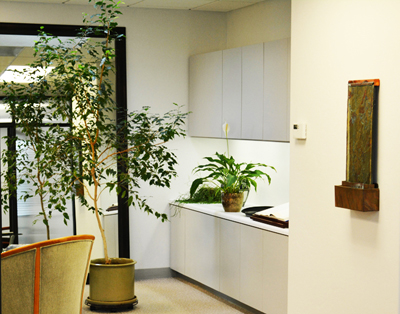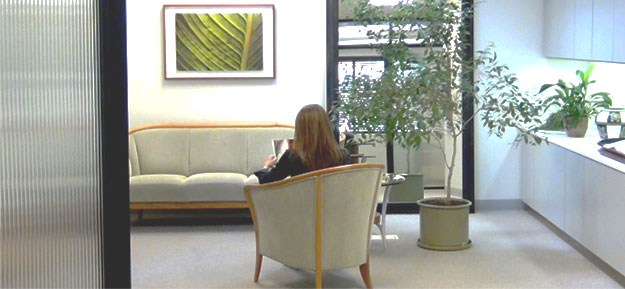Tucson Guardianship
Guardianship, in some jurisdictions referred to as guardianship of the person, occurs when the Court appoints one or more people to be responsible for, and make decisions for, another person who may be of any age. The person for whom a guardianship is established is usually referred to as the “ward”. Guardianship of an adult is indicated in cases where the proposed ward lacks sufficient understanding or capacity to make or communicate responsible decisions concerning the individual’s person.
For example, an adult may be incapacitated due to injury or disease. In those cases, often a family member will seek to be appointed the guardian. This is especially important so that someone can give consent for medical treatment, and decide where and under what conditions the ward will live. When more than one person is appointed as guardian, there can be authority for each of the co-guardians to act independently.
 Guardianship usually does not include authority for the guardian to manage the ward’s finances, especially where there are significant assets. In those cases a conservatorship is probably indicated. The court appoints a conservator to administer the financial affairs of another person, much like a guardian makes decisions about the living arrangements and medical care of the ward. In many cases, both a guardian and a conservator need to be appointed by the Court, and one person can serve as both guardian and conservator.
Guardianship usually does not include authority for the guardian to manage the ward’s finances, especially where there are significant assets. In those cases a conservatorship is probably indicated. The court appoints a conservator to administer the financial affairs of another person, much like a guardian makes decisions about the living arrangements and medical care of the ward. In many cases, both a guardian and a conservator need to be appointed by the Court, and one person can serve as both guardian and conservator.
When someone is appointed to be a guardian, we say that the person appointed is a fiduciary. This is an important concept because fiduciaries have responsibilities that the Court enforces. In Arizona, when someone is appointed to be a guardian, that person will have to report annually to a division of Superior Court called the Probate Court. There are serious legal consequences for the neglecting the ward or for not following specific orders of the Court.
Areas of a Guardian’s Responsibility
- Powers and responsibilities similar to those of a parent of a minor child
- Making appropriate arrangements for the ward’s personal needs
- Making decisions concerning the ward’s educational, social, and religious activities
- Making decisions about the ward’s medical needs
- Arranging for medical care even if the ward does not wish to have it
- In some cases, handling small amounts of money or property belonging to the ward (larger amounts of money or property probably require a conservatorship)
- Reporting to the Court, and numerous other responsibilities
How Do You Become a Guardian in Arizona?
It is advisable to engage the services of an attorney with experience in the Probate Court. It is possible to represent one’s self in these matters but that is usually not a good idea because even the smartest person is likely to make procedural errors that can take time and be costly to correct.
- A petition is filed with the Court, a hearing date is set and the Court appoints (1) an attorney to represent the proposed ward, and (2) an investigator who produces a written report.
- Unless there is an emergency situation, a hearing will be held a month or six weeks after the filing of the petition. If it appears that a guardianship is indicated and there are no objections to the petition then a Court Commissioner will appoint the Guardian.
- If there is an objection to the petition then there is a delay of at least a couple of weeks until a Judge can hear the case and decide if the guardianship is indicated and if so, who should be appointed Guardian.
One of the first issues to be addressed in any prospective guardianship matter is whether there is an emergency situation. An example of an emergency is where the proposed ward is placing himself or herself in serious danger, or where the proposed ward, due to impaired judgment, is putting others at risk of harm. There are other types of emergencies as well, and any serious emergency probably justifies an emergency guardianship procedure. When such procedure is invoked, the Court and the attorneys involved will move quickly to set the matter for hearing. It is possible for an emergency appointment to occur within a day or two after first contacting an attorney who routinely works in these cases.
Let Our Firm Help You
Tucson Estate Planning, Probate and Guardianship Attorney
At the Wood Law Firm, we are committed to providing affordable legal services including estate planning, wills, and probate to those in Tucson and the surrounding community.
We Deliver Timely and Reasonable Legal Services to Tucson and the Catalina Foothills Community
Attorney Henry Wood is a member of various Bar Associations.

Please note that the information and materials contained on this website are not, nor are they intended to be, legal advice. You should consult an attorney for individual advice regarding your specific situation.
The Firm does not guarantee that any information on this website is complete or up-to-date. Transmission of the information contained in the Firm website is not intended to create an attorney-client relationship with the Firm or any of its individual attorneys. The Firm cannot represent you until it confirms that such representation will not create a conflict of interest. No attorney-client relationship is created with the Firm absent an express agreement between the Firm and the client.
Sending an Email will not make you a client of the Firm and information included in your Email will not be treated as privileged or confidential. Do not send confidential information via Email unless you are a current client.
